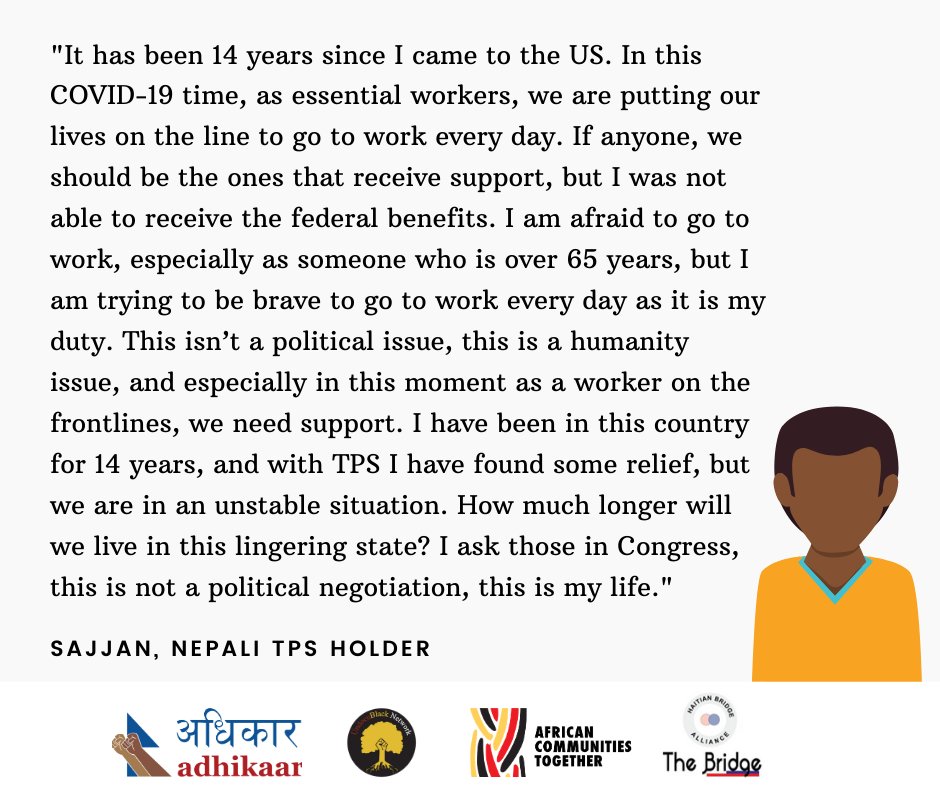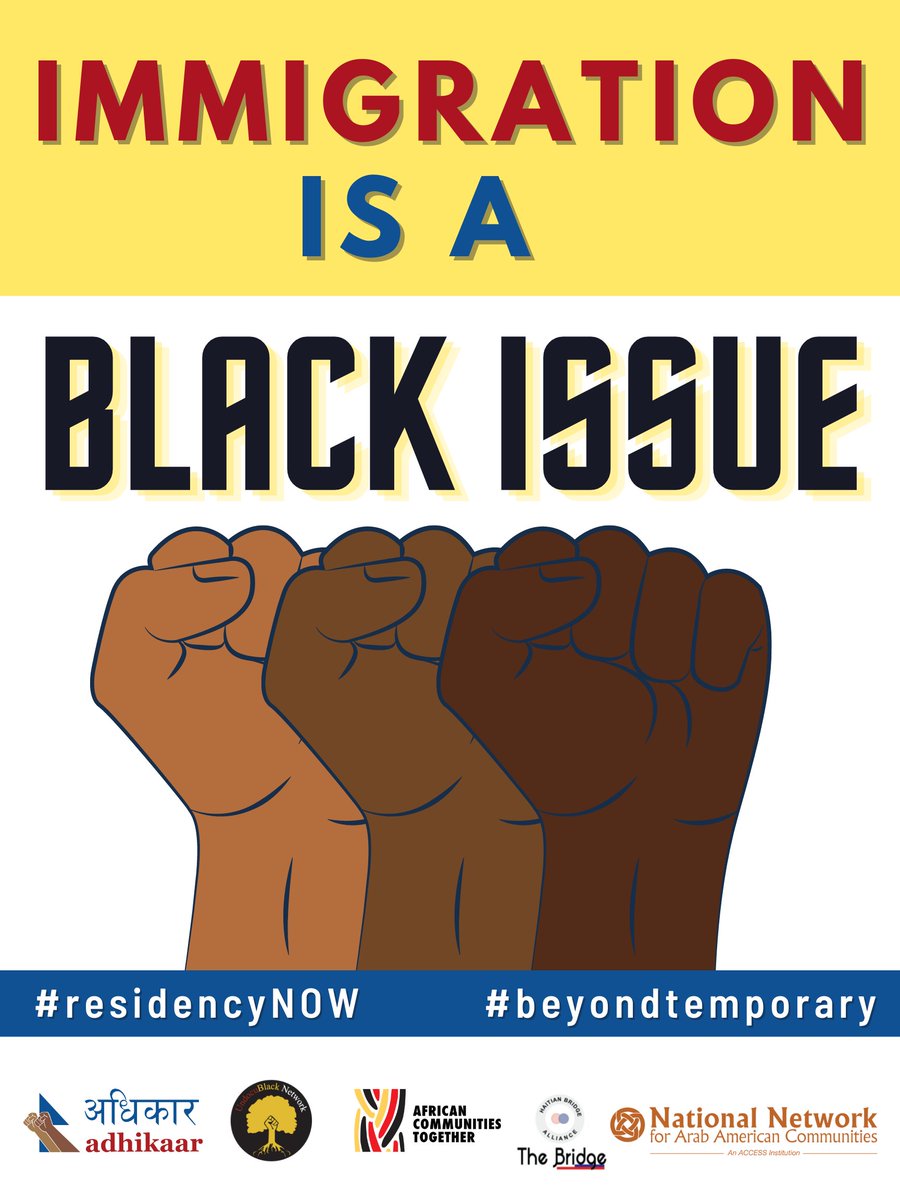
This #InternationalHumanRightsDay let’s talk about a U.S. policy that throws hundreds of thousands of API, Black, Latinx and Arab immigrants into a game of immigration roulette every 6-to 18-months. A thread: 1/10
Here’s why we’re on #TheCUSPofJustice:
400K people in the U.S. with Temporary Protected Status (TPS)—an immigration status assigned to applicants from certain countries facing humanitarian crises. Don’t let the “temporary” name fool you. People have had TPS FOR DECADES. 2/10
400K people in the U.S. with Temporary Protected Status (TPS)—an immigration status assigned to applicants from certain countries facing humanitarian crises. Don’t let the “temporary” name fool you. People have had TPS FOR DECADES. 2/10

El Salvador was the first country to receive TPS in 1991. Followed by Somalia. This means there have been people living in the U.S. with the so-called-temporary-status for close to thirty years. Currently there are 10 countries with TPS. 3/10 cdn.cfr.org/sites/default/…
Lawmakers wrote TPS so they could choose to extend it in increments of 6, 12, or 18 months. This means that people from Somalia who got TPS 29-years ago have had to worry if the U.S. is going to deport them every 18 months. 4/10
TPS holders pay the $400+ renewal fees plus $1000s to lawyers because they know that if they lose their status they can be targeted for deportation. We also know that Black immigrants are disproportionately targeted and impacted by the immigration system. 5/10 

But too often, all of our TPS communities are overlooked in the immigration debate by the media. Simply put: we’re telling our stories ourselves to get our needs met. 6/10
This is why we are #UnitedOnTheCUSP to fight for our needs, hopes, and dreams. We’ve created Communities United for Status and Protection, for us, by us. @AfricansUS @Adhikaar @UndocuBlack @HaitianBridge @NNAAC 7/10
The U.S. subjectively decides what countries get TPS extensions. Nepal’s TPS was canceled in 2018 despite 81% of Nepali TPS survey respondents fearing for their safety if they return. COVID-19 deepened health crises in Nepal from the 2015 earthquake. 8/10 bit.ly/Nepal-TPS-Repo…
No one should be living with this kind of anxiety & distress. The voices of immigrants -- their dreams, their hopes for their families, the resilience they’ve gained from their experiences -- should drive the US immigration policy solutions. #BeyondTemporary 9/10
Stay connected with us so we can go #BeyondTemporary. Follow #UnitedOnTheCUSP partners today:
@AfricansUS
@Adhikaar
@UndocuBlack
@HaitianBridge
@NNAAC
10/10
@AfricansUS
@Adhikaar
@UndocuBlack
@HaitianBridge
@NNAAC
10/10
• • •
Missing some Tweet in this thread? You can try to
force a refresh


